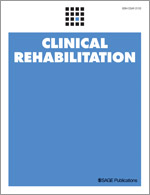Clinical Rehabilitation
Clinical Rehabilitation is a multidisciplinary healthcare specialty focused on restoring the physical, sensory, intellectual, psychological, and social function of individuals who have experienced a significant impairment or disability due to disease, disorder, condition, or injury. The primary goal of clinical rehabilitation is to enable individuals to achieve their highest level of independence and quality of life. This field encompasses a broad range of therapies, including physical therapy, occupational therapy, speech and language therapy, neuropsychology, and rehabilitation nursing, among others.
Overview[edit | edit source]
Clinical rehabilitation services are designed to help individuals regain skills, or if full recovery is not possible, to adapt to their conditions and live as independently as possible. Rehabilitation can be necessary for a wide range of conditions, including, but not limited to, stroke, spinal cord injury, traumatic brain injury, orthopedic injuries, amputation, neurological disorders, and chronic diseases such as multiple sclerosis and Parkinson's disease.
Components of Clinical Rehabilitation[edit | edit source]
The process of clinical rehabilitation is tailored to meet the unique needs of each individual, depending on the specific challenges they face. Key components include:
- Assessment: Comprehensive evaluation of the patient's physical, psychological, and social needs.
- Goal Setting: Collaborative process between the patient and the rehabilitation team to set short-term and long-term goals.
- Intervention: Implementation of a personalized rehabilitation plan that may include various therapies and interventions.
- Evaluation: Ongoing process to assess the effectiveness of the rehabilitation plan and adjust it as necessary.
Therapies in Clinical Rehabilitation[edit | edit source]
- Physical Therapy: Focuses on improving physical function through exercises, mobility training, and other interventions.
- Occupational Therapy: Aims to enhance independence in daily living activities through adaptive techniques and equipment.
- Speech and Language Therapy: Addresses communication and swallowing difficulties.
- Neuropsychology: Assists in managing cognitive and behavioral issues resulting from brain injury or disease.
- Rehabilitation Nursing: Provides specialized care to support recovery and manage medical needs.
Interdisciplinary Approach[edit | edit source]
Clinical rehabilitation is inherently interdisciplinary, involving a team of healthcare professionals who work collaboratively to address the comprehensive needs of the patient. This team may include physiatrists (rehabilitation physicians), physical therapists, occupational therapists, speech and language therapists, neuropsychologists, rehabilitation nurses, social workers, and other specialists.
Challenges and Considerations[edit | edit source]
One of the primary challenges in clinical rehabilitation is the need for personalized care plans that can adapt to the evolving needs of the patient. Additionally, access to comprehensive rehabilitation services can be limited by factors such as geographic location, availability of specialists, and healthcare coverage.
Future Directions[edit | edit source]
Advancements in technology, such as robotic-assisted therapy, virtual reality, and wearable technology, are increasingly being integrated into rehabilitation programs to enhance outcomes. Research continues to explore new methods and interventions to improve the efficacy of rehabilitation and expand its applicability to a broader range of conditions.
Search WikiMD
Ad.Tired of being Overweight? Try W8MD's physician weight loss program.
Semaglutide (Ozempic / Wegovy and Tirzepatide (Mounjaro / Zepbound) available.
Advertise on WikiMD
|
WikiMD's Wellness Encyclopedia |
| Let Food Be Thy Medicine Medicine Thy Food - Hippocrates |
Translate this page: - East Asian
中文,
日本,
한국어,
South Asian
हिन्दी,
தமிழ்,
తెలుగు,
Urdu,
ಕನ್ನಡ,
Southeast Asian
Indonesian,
Vietnamese,
Thai,
မြန်မာဘာသာ,
বাংলা
European
español,
Deutsch,
français,
Greek,
português do Brasil,
polski,
română,
русский,
Nederlands,
norsk,
svenska,
suomi,
Italian
Middle Eastern & African
عربى,
Turkish,
Persian,
Hebrew,
Afrikaans,
isiZulu,
Kiswahili,
Other
Bulgarian,
Hungarian,
Czech,
Swedish,
മലയാളം,
मराठी,
ਪੰਜਾਬੀ,
ગુજરાતી,
Portuguese,
Ukrainian
Medical Disclaimer: WikiMD is not a substitute for professional medical advice. The information on WikiMD is provided as an information resource only, may be incorrect, outdated or misleading, and is not to be used or relied on for any diagnostic or treatment purposes. Please consult your health care provider before making any healthcare decisions or for guidance about a specific medical condition. WikiMD expressly disclaims responsibility, and shall have no liability, for any damages, loss, injury, or liability whatsoever suffered as a result of your reliance on the information contained in this site. By visiting this site you agree to the foregoing terms and conditions, which may from time to time be changed or supplemented by WikiMD. If you do not agree to the foregoing terms and conditions, you should not enter or use this site. See full disclaimer.
Credits:Most images are courtesy of Wikimedia commons, and templates, categories Wikipedia, licensed under CC BY SA or similar.
Contributors: Prab R. Tumpati, MD

